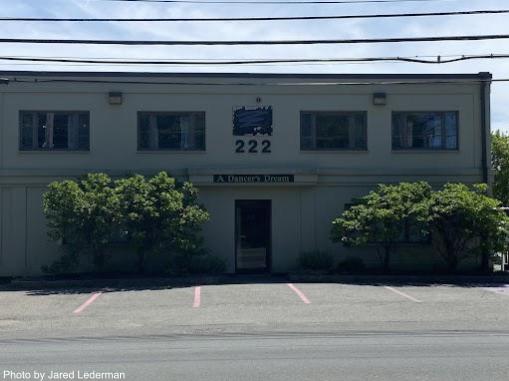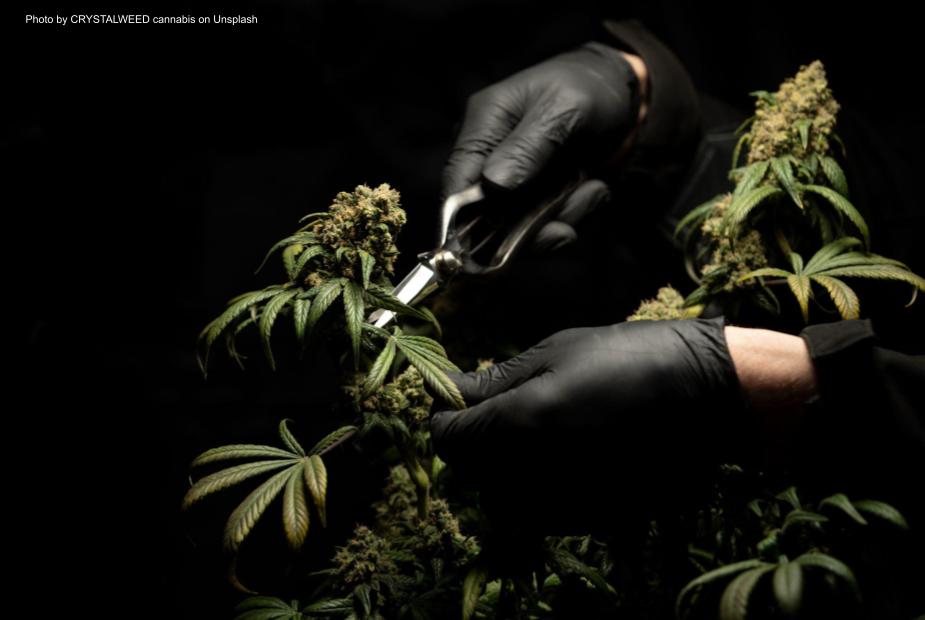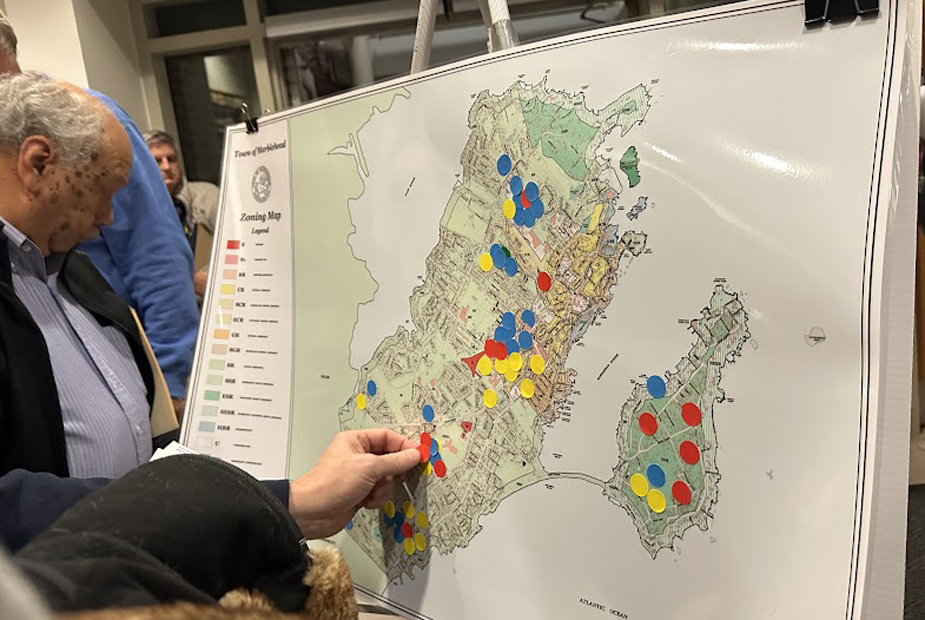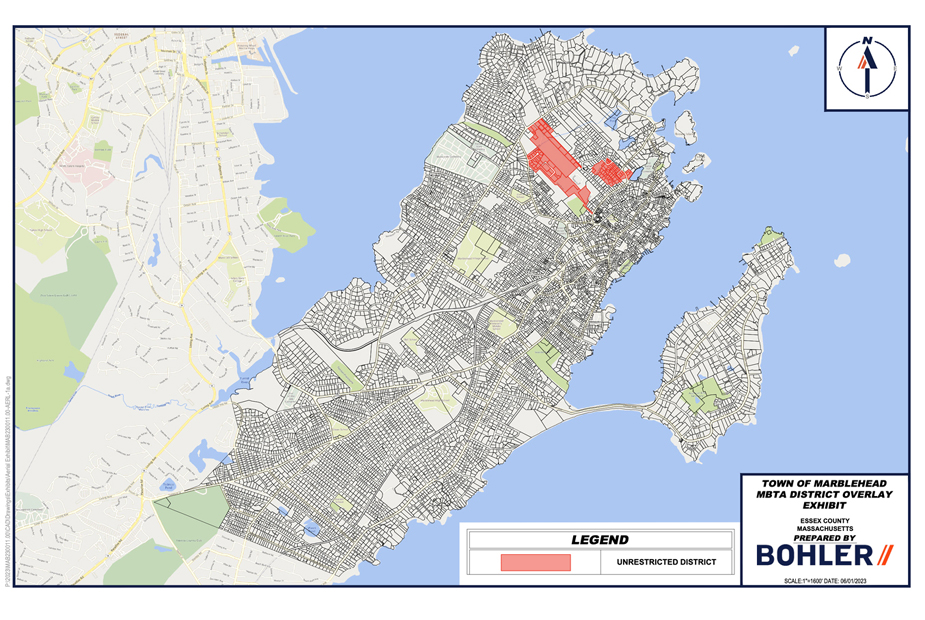A Marblehead Beacon Focus on Legalized Cannabis in Marblehead
Marblehead Beacon Focus articles are long-form pieces on subject matter that requires a deep dive and may be part of a multi-part series.
Two Recreational Marijuana Storefronts on Track to Open
Background and Law
In recent years, efforts to decriminalize and/or legalize recreational marijuana have been on ballots across the country, and numerous communities in Massachusetts have begun to open their doors to cannabis storefronts. Prior to these legal developments, some states and municipalities had only medicinal marijuana outfits–stores that allowed the legal purchase of high-dose THC (tetrahydrocannabinol, also known as marijuana) with a prescription from a physician. Since 2016, recreational marijuana in Massachusetts has gone from being sold legally in only a handful of brick-and-mortar stores in few cities, to being widely available across the Commonwealth. A drive down Route 1A showcases upwards of a half dozen cannabis stores on billboards, as well as advertisements for store-to-home delivery services of cannabis products.
Marblehead is one community that has opted to allow dealers of cannabis to operate in various parts of town once certain baseline parameters are met.
Number of Stores and Locations
Pursuant to Marblehead law, the cap on cannabis-selling operations is effectively two. Specifically: “The number of marijuana retailers…in the Town of Marblehead shall be limited to 20% of licenses issued in the Town of Marblehead for retail sale of alcoholic beverages not to be drunk on the premises where sold, which shall be calculated by rounding up to the next whole number.”
According to the Town Clerk’s office, a maximum of five “All Alcoholic Package Store” licenses are currently permitted, as are a maximum of five “Wine and Malt Package Store” licenses, of which three have been issued. Twenty percent of the ten available total is two, both of which have been provisionally allotted by the Select Board. Pending state licensing approval in the coming months, Aro Cannabis and Seven Leaf Sisters (which will do business as Partake by Kind Lab) will each own a cannabis storefront license.
THC and the Federal Government
What frustrates scientists and those who wish to study marijuana/THC is that–while it is legal in numerous states across the country–at the federal level, marijuana is illegal; it is a Schedule 1 drug 1. This impacts more than the casual user; it ties the hands of researchers looking to generate randomized, controlled, peer-reviewed studies that could shed light on everything from efficacy for medical purposes, to effects of recreational use. Studying marijuana in laboratories, therefore, has been next to impossible to do legally in the United States, though it is studied extensively in other countries. Until very recently, only the University of Mississippi was allowed to cultivate marijuana for the purpose of laboratory studies, and the expansion beyond that institution has been minimal, effectively leaving marijuana minimally studied stateside. Very recently the federal government relaxed some of its restrictions; nevertheless jumping through the hoops to get a coveted license to study marijuana remains elusive for many. Were the federal government to remove marijuana from the Schedule 1 designation (that it shares with heroin and LSD, for instance), it could be a game changer in terms of research potential and the creation of therapeutics.
Kevin McKernan is Chief Scientific Officer and founder of Medicinal Genomics and a longtime Marblehead resident with involvement managing the Research and Development team for the Human Genome Project at Whitehead/MIT as well as in the world of DNA sequencing. His extensive experience at the intersection of genomics and cannabis makes him a known expert in both arenas, so Marblehead Beacon reached out to him. “[W]e spun out a highly risky but highly disruptive technology into a company …[that] invented a new method of DNA sequencing known as SOLiD sequencing,” he said. Successor company Applied Biosystems’ new sequencer “was first deployed sequencing tumor genomes to find druggable targets in tumors that differed from the genome of the patient.” This is where McKernan first became aware of the potential for cannabinoids–which refer to the many compounds within the cannabis plant–to be tools against cancer, and certainly for their mitigating effects on the pain associated with cancer.
Perhaps the most well-known compounds from the cannabis plant are THC and CBD (cannabidiol), the former having the ability to produce a euphoric high, among other effects; the latter purportedly associated with anxiety reduction and addressing the symptoms of other psychological and medical conditions–but without the mind-altering effects of THC.
“THC is a partial agonist to the Cannabinoid 1 receptor,” says McKernan. In essence this means that in the brain and immune system–where such receptors live–a high can be triggered, as well as potential short-term memory loss, both of which are thought to be counteracted by pregnenolone and ibuprofen, respectively. In some cases, an individual may wish to seek the positive impact of THC on his or her disease, but does not wish to experience the high. In this case, counteracting the mind-altering impacts with these other medications can be warranted. “THC [has] medical implications in a vast array of inflammatory and neurology-based diseases… [like] epilepsy, PTSD, and arthritis," noted McKernan.
CBD, on the other hand, does not bind the same way and to the same receptor as THC, notes McKernan, which allows it to be used for things such as anxiety reduction, without bringing on a high. But “[t]he truth is more complicated than just THC and CBD,” according to McKernan. “The plant actually makes [other compounds.]” Not all produce a high, but some, says McKernan, offer strong anti-inflammatory impact. He notes that the plant makes 140 cannabinoids, the most common ones (outside of THC and CBD) available in dispensaries are THCA, CBDA, and CBN, some of which he suggests show early promise in the prostate cancer arena. As noted above, removal of marijuana from the federal Schedule 1 classification could move the needle substantially in this field of study.
McKernan has some personal experience as well, as his own father battled stage-four prostate cancer that had traveled to his bones. “Cannabinoids gave [my father] a comfortable four years as he fought the disease that ultimately took his life."
Local Perspectives
As two recreational cannabis dispensaries prepare to open in Marblehead, there are varying perspectives among town residents and business owners as to whether having multiple stores that offer cannabis products–specifically the mind-altering THC–will ultimately prove to be a positive development for the town. Some believe that any business providing tax revenue to the town–particularly as increasing costs and override possibilities loom large–makes good sense. “In terms of the town’s fiscal house,” said Select Board Member Erin Noonan at a hearing for Aro’s license last August, “we are looking in the couch cushions for change; we can’t turn down a potential of $350,000.” Furthermore, some proponents believe, there are positives (beyond medicinal) that offering legally regulated THC to the general population provides, including providing an alternative to street marijuana of questionable quality, particularly as untested and dangerously potent synthetic cannabis can be a staple in drug dealers' arsenals.
In spite of reassurances that children will not be able to purchase the local stores' marijuana products, there is a sense among some that two dispensaries in town will create additional downstream effects for minors who may end up consuming more edibles and vaping, as well as increased risks of unfortunate outcomes on the town’s roadways due to more cannabis-impaired driving, for which nothing akin to a breathalyzer is yet available.
“My main concern is that having cannabis stores in town normalizes pot for kids, which makes it even more likely that teens whose brains are not fully developed will be encouraged to drive after ingesting it,” said a Marblehead parent who wished to remain anonymous. “My teen’s school breathalyzes kids before certain events, but doesn’t that just steer them into doing drugs and popping pills?” she asked. “Testing for drug use isn’t something that can be easily accomplished,” she noted, raising the issue that because marijuana can stay in a person’s system for days or weeks, there is no reliable road-side test that law enforcement can use, yet impairment related to response times and other important factors involved in driving, can exist after THC ingestion. “Kids know this and I’d just rather not encourage that in our community.”
McKernan, with his professional experience studying cannabinoids, and whose wife, Rebecca, is involved in one of the two planned Marblehead dispensaries (Partake by Kind Labs), disagrees. Having legalized–as opposed to merely decriminalized–cannabis products available is a net positive for myriad reasons, he believes, and he is not concerned about downstream effects on children. “I don’t worry about kids using cannabinoids recreationally. I worry about them using alcohol or other street drugs that have no quality-control program like we have at dispensaries.” Everything from pesticide and fungicide testing to potency checks to rigorous general safety measures are in place for products sold at dispensaries, which cannot be said for what is purchased from local drug dealers, notes McKernan. With regard to edibles, this is even more important, he says, as “edibles are processed by your liver, which converts THC into 11-hydroxy THC, which is five times more psychoactive than THC.” Overall, McKernan believes that the protective mechanisms in place for dispensary-acquired cannabis products place them leaps and bounds ahead of street cannabis products in every way.
Dennis King, Marblehead’s Chief of Police, whose career has spanned many years and who joined Marblehead’s police force last year from neighboring Salem, has seen the impacts of dispensaries opening. Speaking to Marblehead Beacon, King said, “We had the first [medicinal marijuana] store in the state in Salem. People were concerned about traffic and a possible increase in crime,” but after things settled, he said, traffic abated and Salem saw no noticeable impact on crime. Asked about his position on the difficulty in managing roadside testing without a legally accepted breathalyzer-type test for THC impairment, he said that while law enforcement across the country waits for a scientifically and legally accepted test to be available, he is confident that field-sobriety-type tests that have been used by police and are widely accepted in courts, will suffice in helping to determine impairment.
So far as downstream negative impacts on Marblehead’s crime and traffic-related incidents, King’s take is informed by his institutional knowledge, including his time as Acting Chief of Police in Salem. “The state has incredibly high regulatory hurdles for stores to open,” he notes, and does not anticipate growing problems stemming from the opening of these stores.
Settled Law
Regardless of the varying opinions on the merits of such establishments in town, the laws of Massachusetts and Marblehead are clear: cannabis products–both THC and CBD–are legally permissible. With the law settled, re-litigating the permitting of marijuana shops in town may be of little value, but debating the ongoing matter of where such shops should be located and to whom licenses should be allotted, is ongoing.
Within the past year, the Select Board had before them several potential licensees, two of whom were approved provisionally: Aro Cannabis and Seven Leaf Sisters. Initially, Aro was denied approval in a three-to-two vote by the Select Board, which found that the owner, Mark Schuparra, had not provided a traffic study or adequate assurances that parking and traffic would not pose problems at his originally proposed location at 31 Atlantic Avenue. According to Select Board meeting minutes, he had not been asked to provide such information prior to the denial. Ultimately Schuparra came back to the Select Board with a new location (222 Beacon Street–the building formerly occupied by A Dancer’s Dream) and was granted conditional approval pending the state’s Cannabis Control Commission approval. Seven Leaf d/b/a Partake by Kind Lab was granted conditional approval as well. Both licensees' “host agreements” lay out the Town of Marblehead’s expectations for each dispensary.
The town and state requirements for each retailer are detailed and specific, and include that each store must:
- Not be within 500 feet of a school (with certain exceptions)
- Provide 24-hour alarm and surveillance cameras
- Provide a security officer during store hours
- Check ID at entry and purchase
- Commit to giving the Town of Marblehead up to three percent of its gross revenues to offset any negative impact of its existence, to be determined by the town
- Minimize “diversion,” which refers to the attempt to limit cannabis products from reaching the hands of those under 21 years of age
Before opening or even having its final licensing from the Commonwealth’s Cannabis Control Commision, both Aro and Seven Leaf Sisters had to provide a down payment of sorts to the town toward the three-percent offset fee. Between the standard taxes and the three-percent “impact fee” that Marblehead will charge (which each town in Massachusetts has the discretion to lower to zero if it chooses), the town stands to receive hundreds of thousands of dollars in revenue from the two stores.
Partake and Aro Cannabis: What to Expect
Angela Arena, owner of Partake by Kind Lab (which will be the store name under Seven Leaf Sister’s license) executed a Host Agreement with the Select Board in November 2021, and spoke to Marblehead Beacon about her plan for the storefront to be located at 385 Atlantic Ave. Host agreements lay out the expectations for the retailer vis a vis the Town of Marblehead.
Hopeful Partake will open for business by the end of the 2022 calendar year, Arena said, “I have many steps remaining, as the only thing more heavily regulated than cannabis in Massachusetts is uranium.” Still outstanding are things like an architectural review, constructing key-card doors, getting backup power, and all the other pieces that are required to pass state and local inspections. “If there is one thing Covid and supply-chain issues have taught me, it’s to be ready to pivot.”
Partake and Aro will both be selling THC products, and each will be limited by state law to carrying edibles of a certain maximum potency and will be mandated to register every individual’s purchase with the government. Still, each store will offer something different. “My brand is geared heavily toward making the cannabis plant accessible to women,” Arena said. “I will cater to male customers too, but I initially started Kind Lab to help solve problems for people in my own demographic: women over 40.”
Arena previously owned a storefront in Marblehead where she sold products containing CBD designed to help customers manage issues like insomnia and anxiety. Before shifting to an exclusively online platform, she received input directly and in person from customers. “My conversations with my customers about what worked for them informed my creation of a product line.” Arena has bigger plans than opening her Partake storefront. She is working on launching a line of THC products designed around the concept of microdosing, which is different from what other retailers may offer.
Asked what she thinks will distinguish her store from Aro, she noted that it is less about one being superior, and more akin to having multiple pizzerias in town. “Everyone likes a different kind of pizza. No one pizza is necessarily better than another, but they can each offer something different.” Rather than having high doses of THC in her products, Arena will focus more on the experiential. “Our store’s footprint is small but we will offer a modern, upscale experience where customers can come in and get personalized treatment,” as well as the ability to choose products based on problems they want help solving, like sleeplessness, social anxiety, and stress. She plans to cater to both longtime THC users as well as those who are reluctant to try THC but might be more open-minded with low-dose THC products.
Arena notes that her business is rooted in a desire to produce products that are sourced responsibly, and she hopes to make a dent in an industry that has very few women and minorities in executive or licensee roles. She plans to keep her mission in mind as she moves ahead with hiring later this year.
Schuparra, Aro’s owner, discussed his plans with Marblehead Beacon as well. Several years ago he was a co-owner of Native Sun Wellness, which he said was involved in cannabis dispensaries as well as a grow facility. He is no longer involved in that company. According to court documents tracked down by Marblehead Beacon, in 2019 he was sued in Suffolk Superior Court by his then-partner and the father of that partner for one million dollars. Schuparra countersued. When asked about the lawsuit, Schuppara referenced a non-disclosure agreement that limited what he could say, but he did assert that none of the claims of the plaintiffs was ever substantiated in court, that the matter had settled, and that the parties walked away amicably.
Since the settlement, Schuparra has moved ahead with his plans and hopes to have a positive impact on the Town of Marblehead. He has the support of many local businesses. “I anticipate opening within about eight months,” Shuppara said, noting that he intends to invest about half a million dollars for improvements of the leased building, which includes making the store into an approximately 5,000 square foot space and adding an elevator. “222 Beacon Street is great because in a smaller storefront, people can feel rushed. We will have a large and relaxed retail environment.”

Explaining the process customers can expect at Aro, Schuppara
spoke of the personalized experience he has planned. “Bud tenders will be working on the floor helping people select products,” he said. “Each product will be tailored to each customer,” which means, Schuparra noted, that different strains produce different effects, and for those who partake in cannabis consumption with great frequency, the products they buy could be quite different potency-wise than those purchased by individuals looking for a lighter “high.”
Schuparra made it clear that quality control is everything in the legitimate, above-board cannabis world. “There is a seed-to-sale tracking system, and everything has to be sourced in Massachusetts” as interstate commerce involving marijuana still violates federal law. Selling a product with contaminants–something that can happen with street marijuana–is prevented by rigorous manufacturing and testing requirements, Schuppara claims. “The result is that we will source and sell top-notch products.” He, like McKernan and Arena, believes that quality is critical in this business. “I grew up in Marblehead. The town has a substantial drinking problem. I wanted people to have options,” Schuparra says. Also like McKernan, Schuppara’s father had cancer, and he wanted to provide him with a legal option to partake in cannabis consumption that would provide him some comfort.
With respect to his counterpart at Partake, Schuparra believes there is “more than enough business in town to support two shops.” While he believes that Aro’s large space will offer a superior retail experience for customers compared to something smaller, he welcomes Arena’s store. “She seems like a really good person,” he notes. “It’s a male-dominated field, so it’s nice to see a woman business owner.”
Steps to Completion
There still remain several significant hurdles Arena and Schuparra must scale prior to getting the official go-ahead from the Cannabis Control Commission and the Town of Marblehead. Both owners know that they will be paying a premium–both financially and with security and other mandates–to the Town of Marblehead. Financially speaking, each owner anticipates that between routine taxes and the substantial supplemental fees required for cannabis dispensaries, the Town is expected to take in significant revenue from the new cannabis businesses. Both owners believe that it makes a lot of sense, particularly as the town faces financial struggles, for the community to support the success of their operations.
In the works for Schuparra is a possible business arrangement with the Town of Salem for a “grow facility.” It’s not a done deal, he says, but he anticipates it being approved in the future. This would be something Schuparra has experience with, as he was involved in such a facility in his professional past. Arena, meanwhile, is finalizing the introduction of a Kind Lab product line that she plans to sell in her store as well as to other retailers.
Coming Up: Cannabis Cafes?
As things stand with Massachusetts law, there are currently no public spaces in which it is legal to consume marijuana products. Legislatively, at the moment, things are stalled, but there appears to be the distinct possibility that the next frontier in the state will be the addition of cafes, or spaces like bars or clubs where adults will be able to smoke, eat, or drink THC products. Should this come to pass, Marblehead’s Aro and Partake could be poised to expand.
To post a comment, please login. If you do not have an account, please create one.









